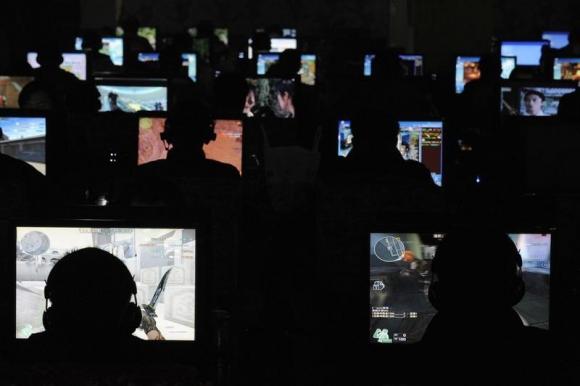China ranked last among the countries included in Freedom House’s 2015 Freedom on the Net report, published this week. Globally, the report warns, Internet freedom has declined for the fifth year running. The practice of requiring companies to participate in censorship, well established in China, is spreading elsewhere, while privacy, anonymity, and encryption are under broad attack. From the report’s Summary of Findings:
To illuminate the nature of the principal threats in this rapidly changing environment, Freedom House conducted a comprehensive study of internet freedom in 65 countries around the world. This report, the fifth in its series, primarily focuses on developments that occurred between June 2014 and May 2015 [….]
[…] China was the year’s worst abuser of internet freedom. As President Xi Jinping made “cyber sovereignty” one of the priorities of his tenure as leader of the Chinese Communist Party, internet users endured crackdowns on “rumors,” greater enforcement of rules against anonymity, and disruptions to the circumvention tools that are commonly used to bypass censorship. Though not entirely new, these measures were implemented with unprecedented intensity. Google, whose services were frequently interrupted in the past, was almost completely blocked. Veteran human rights defenders were jailed for online expression, including lawyer Pu Zhiqiang, who faces charges of “picking quarrels” in connection with 28 social media posts, and 70-year-old journalist Gao Yu, who was sentenced to seven years in prison for sending “state secrets” to a foreign website. Official censorship directives during the year suppressed online commentary on issues ranging from Hong Kong prodemocracy protests to stock-market volatility.
[…] It remains to be seen whether repressive efforts will be sustainable in the long run. The global struggle for internet freedom led to several positive achievements over the past year, raising the possibility of greater advances in the future. Digital activism has been and remains a vital driver of change around the world, particularly in societies that lack political rights and press freedom. The greatest gains, however, have been made through legislative changes or judicial decisions, indicating that countries with meaningful political debates and independent judiciaries have a distinct advantage in safeguarding internet freedom over their more authoritarian counterparts. These victories and others like them could help ensure that the fight for a free and open internet ultimately succeeds, despite the setbacks that have affected so much of the world in recent years. [Source]
Views on the long-term prospects for Internet censorship are mixed. Some have argued that ubiquitous encryption will make it impossible, while others warn that a “perfect firewall” is on the way.
China is accused of conducting “widespread, ongoing, or repeated censorship” in eight of ten content categories assessed by Freedom House: conflict, corruption, political opposition, satire, social commentary, mobilization for public causes, ethnic and religious minorities, and LGBTI issues. Criticism of authorities saw only “sporadic or limited censorship,” however. “A certain amount of open discussion,” the report’s China chapter explains, “allows officials to monitor public sentiment, debunk ‘enemy’ ideology without triggering censorship, and conduct internal power struggles.” Other research has suggested that political criticism may be tolerated as long as it is unlikely to lead to collective action. Blasphemy is the one category in which no significant censorship was noted.
The China chapter—written by Sarah Hoffman and Wen Yunchao—notes intensifying “acts of unconcealed aggression against internet freedom.” One measure of this tightening is the number of Alexa’s top 1,000 websites blocked in China: 169 in 2014, according to GreatFire.org, up from 62 the previous year. “Censorship decisions are arbitrary, opaque, and inconsistent, in part because so many individuals and processes are involved,” although Xi Jinping’s administration has brought a degree of consolidation. Internet control is often exercised through murky “regulations” rather than laws, with “no formal avenues for appeal.” However, authorities are working to provide legal backing for even harsher controls and punishments.
The report states that “privacy protections under Chinese law are minimal,” and that “the law explicitly authorizes government access to privately held data.” Real name registration requirements have expanded, incidentally making it harder for government-paid commenters to operate anonymously; some have reportedly been encouraged to use fake identities to circumvent the registration system. Elsewhere:
The DPI technology used for censorship can monitor users, and personal text- and instant-message exchanges have been cited in court documents. One academic study reported that when users entered blacklisted search terms on Baidu, their IP addresses were automatically sent to a location in Shanghai affiliated with the Ministry of Public Security. Cybercafes check photo identification and record user activities, and in some regions, surveillance cameras in cybercafes have reportedly transmitted images to the local police station. Given the secrecy surrounding such capabilities, however, they are difficult to verify. [Source]
“Criticism of censorship is itself censored,” the report notes. Indeed, the state-owned Global Times stripped all reference to China’s low ranking from a republished AFP article on the report.







